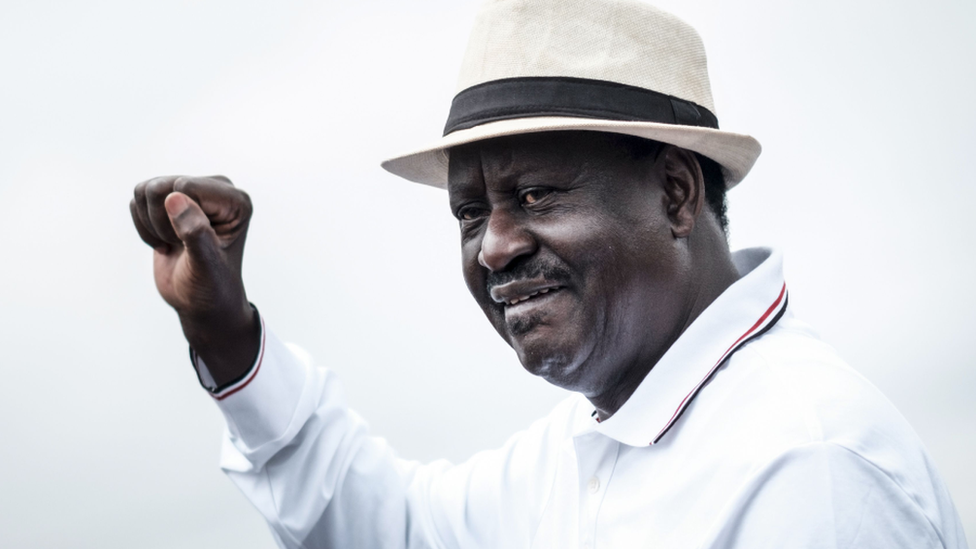Kenya TV channels still off air despite court order
- Published
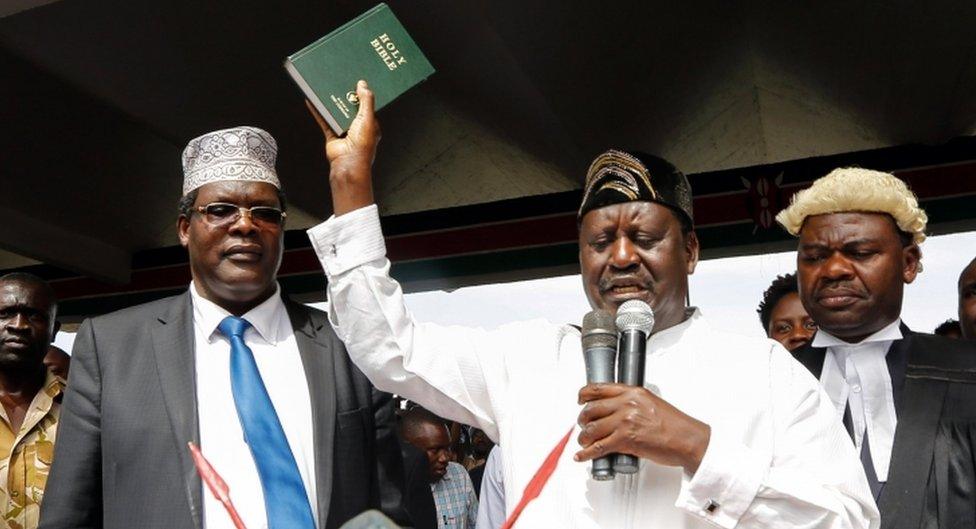
Raila Odinga declared himself the "people's president" in Nairobi on Tuesday
Three of Kenya's largest private TV channels remain off the air, despite an order by the country's High Court suspending a shutdown.
The government cut off KTN, NTV, and Citizen TV over plans to broadcast opposition leader Raila Odinga's unofficial "inauguration" on Tuesday.
The court suspended the ban for 14 days while the case is heard.
There is no sign the government will comply with the court ruling, the BBC's Gladys Kigo reports from Nairobi.
Mr Odinga lost last year's election and his "swearing-in" was widely seen as a publicity stunt, but the authorities said it was an act of treason.
Opposition groups have accused the Kenyan government of violating the public's right to information about important events.
When asked about the matter, Joseph Mucheru, the minister of information, communication and technology, told the BBC it was a security issue and that only the security minister could answer the question of when the stations would be able to broadcast again.
The High Court also ordered the state not to interfere with the operation of KTN, NTV, and Citizen TV pending a full hearing.
The channels were taken off the air on Tuesday morning ahead of the "swearing-in", but continue to stream their content online.
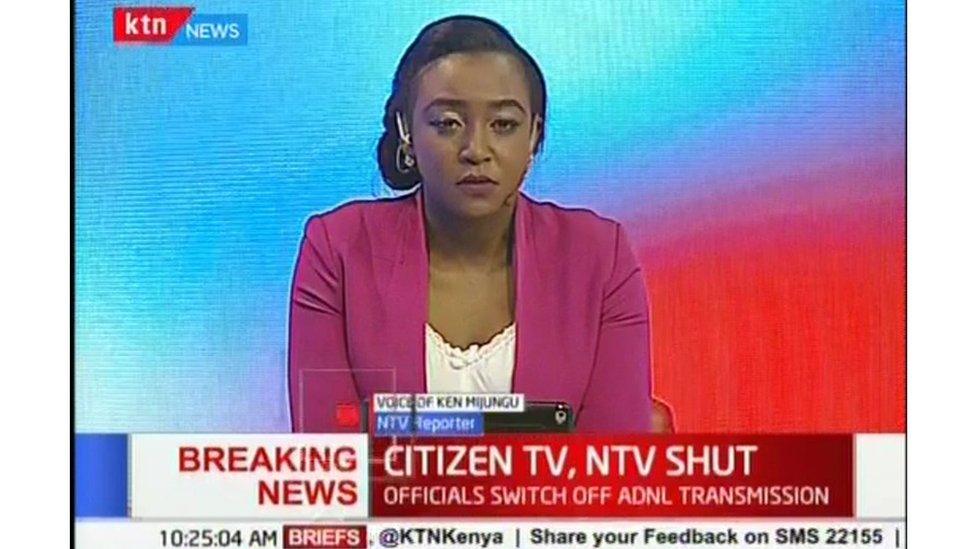
Kenyan news broadcasters were taken off-air but were live streaming their coverage online
The interior ministry said in a statement circulating on social media that broadcasting the event - described as an attempt to "subvert or overthrow" the government - "would have led to the deaths of thousands of innocent Kenyans".
Kenyan journalists denounced the move as outrageous and in a statement called for "respect of the constitution" and an end to the "unprecedented intimidation of journalists".
Some journalists have been camping out in their newsrooms for fear of being arrested.
Linus Kaikai, the head of NTV, said: "We were informed by very reliable sources that policemen were downstairs and what they wanted to do was to arrest us when we leave the building, so we have since that time not left the building."
BBC analysts say KTN, NTV and Citizen TV are perceived to offer relatively independent and balanced news coverage, though they have been criticised by the opposition in the past.
In their absence, some Kenyans are turning to newspapers and social media for their news. Others are going to the state-owned KBC and the private K24 TV. The two stations usually attract low viewership due to their pro-government bias.

'Kenyans fuming'
Analysis: Ferdinand Omondi, BBC News
Kenyans have been fuming at their inability to watch news and their favourite programmes for three days, and will welcome the court's decision.
The affected media companies have suffered losses measured in the millions of dollars. The TV stations depend on advertising, so they could not make money during the period they have been off-air.
Human rights activist Okiya Omtatah, who petitioned the court, asked the government to pay for the financial losses that Citizen TV, KTN and NTV have incurred.

A Kenyan electronics dealer stands by blank screens that should be playing the three suspended channels
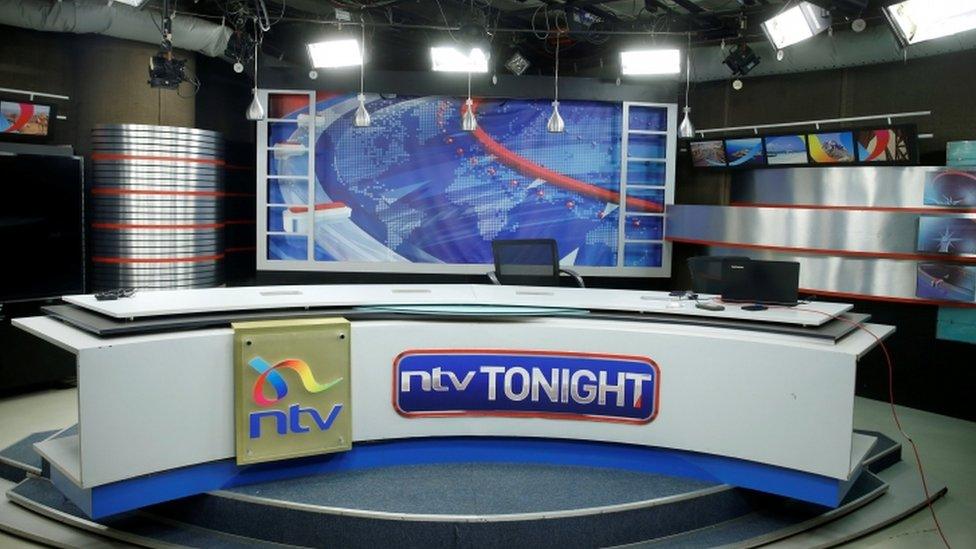
An empty studio belonging to the NTV channel
The stations command nearly two-thirds of Kenya's TV audience. But the emergence of alternate advertising platforms, including social media, was already hurting their revenue streams. The three companies have been forced to lay off hundreds of workers in the past year to balance their books.
The Kenyan government had wanted the stations to remain shut indefinitely as police investigated Tuesday's ceremony.

President Uhuru Kenyatta was sworn in for a second term last November after winning an election re-run in October that Mr Odinga boycotted.
Mr Kenyatta's initial victory was overturned by the Supreme Court, which cited "irregularities and illegalities".
The inauguration event in Nairobi's Uhuru park on Tuesday was attended by thousands of Odinga supporters, and passed off peacefully.
- Published31 January 2018

- Published30 January 2018
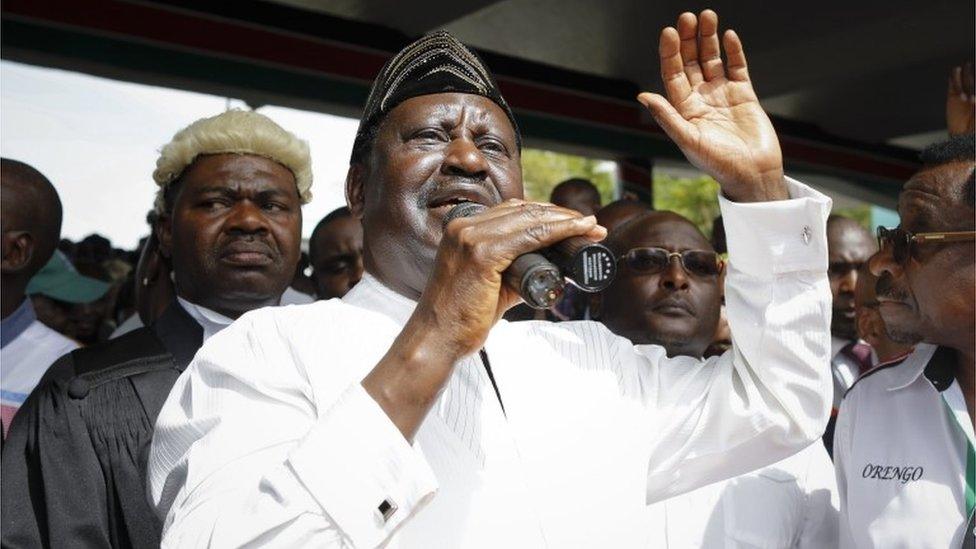
- Published30 January 2018
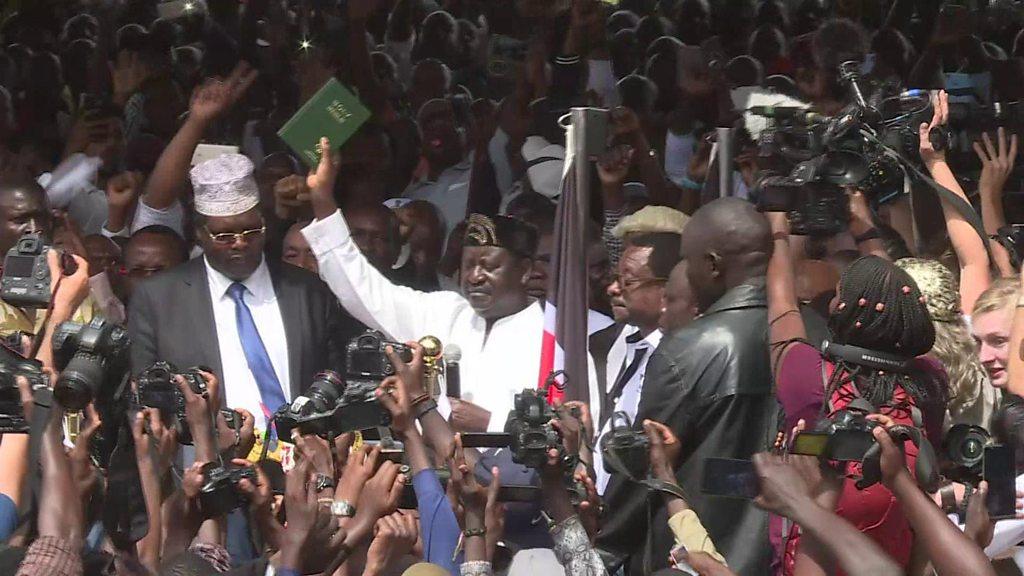
- Published28 November 2017
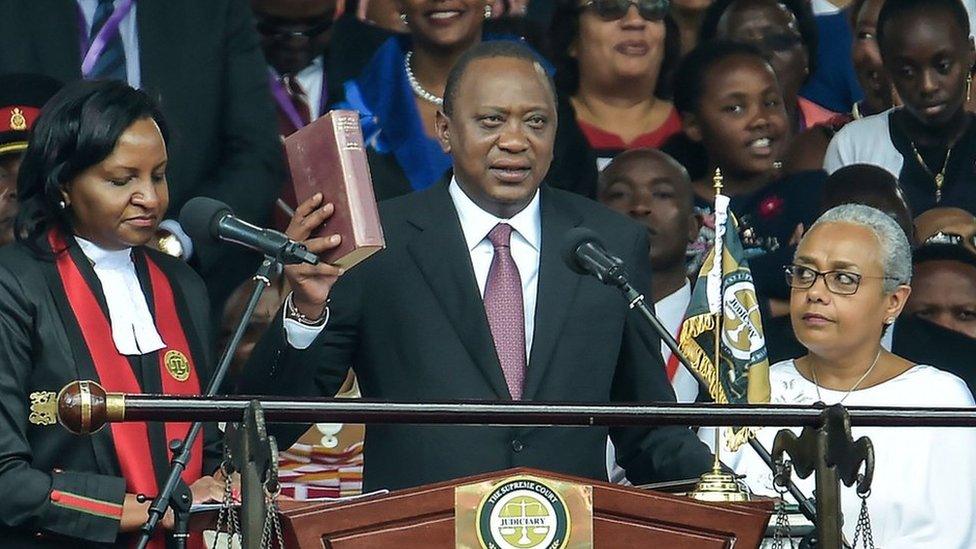
- Published28 November 2017
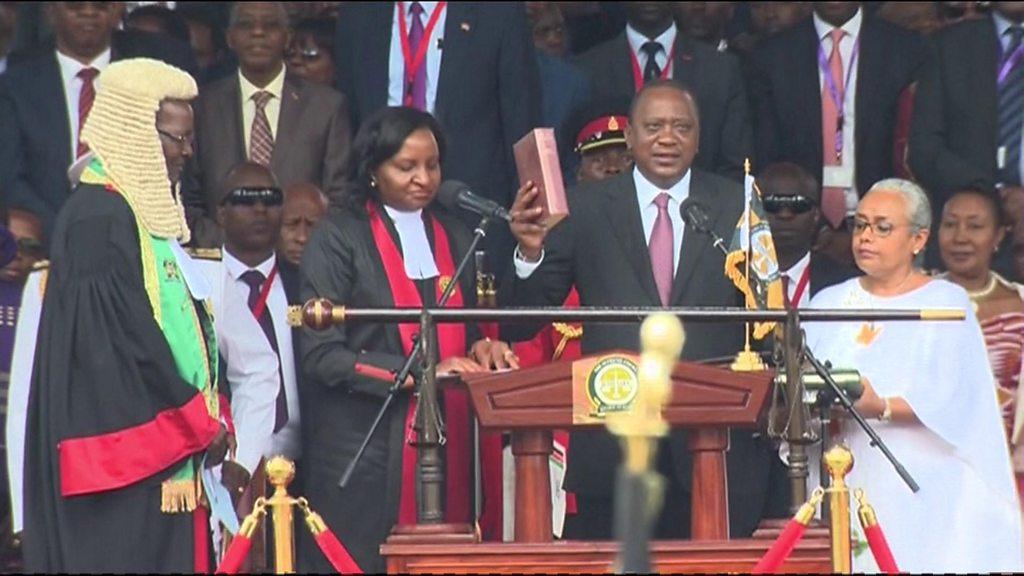
- Published27 November 2017
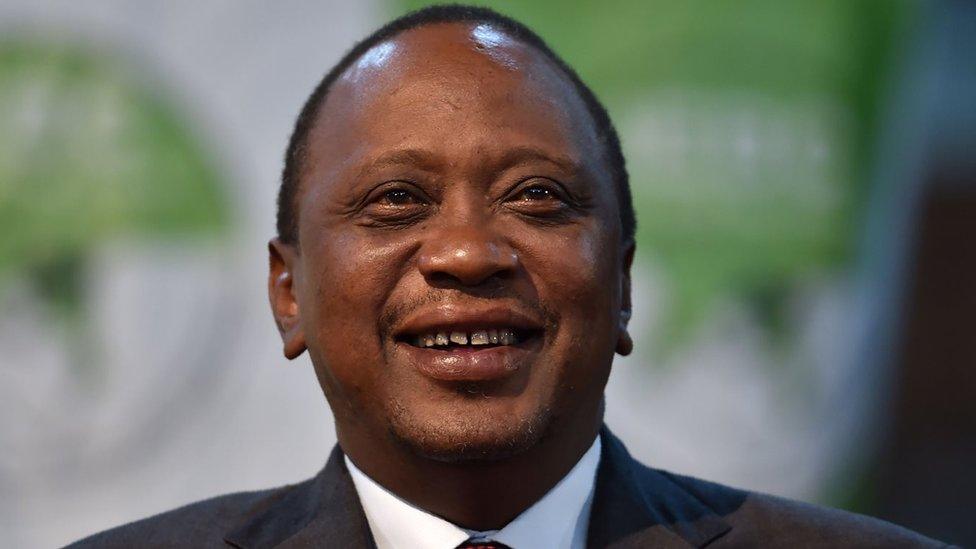
- Published26 October 2017
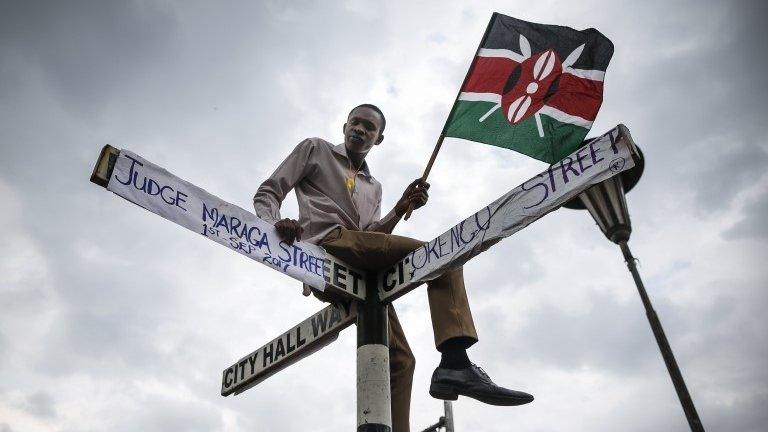
- Published25 October 2017
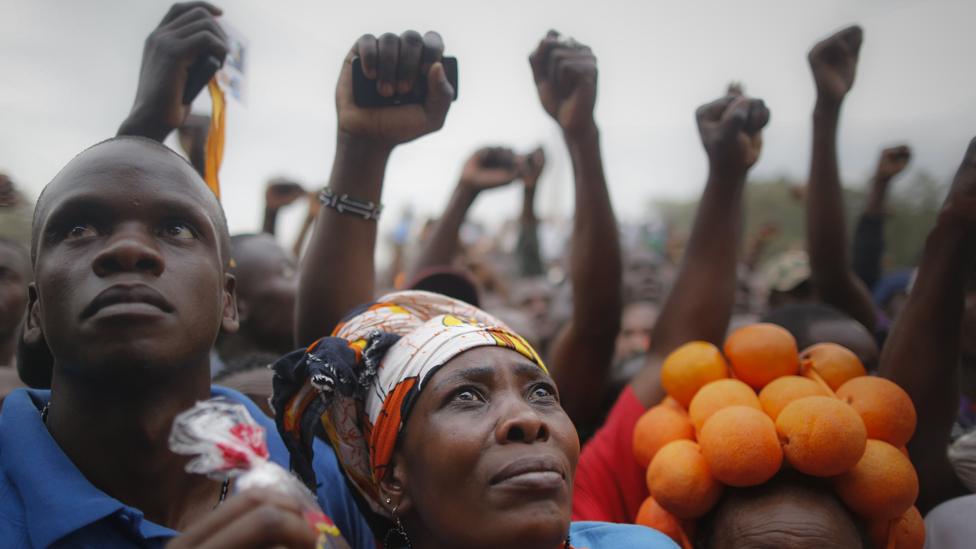
- Published22 August 2022
